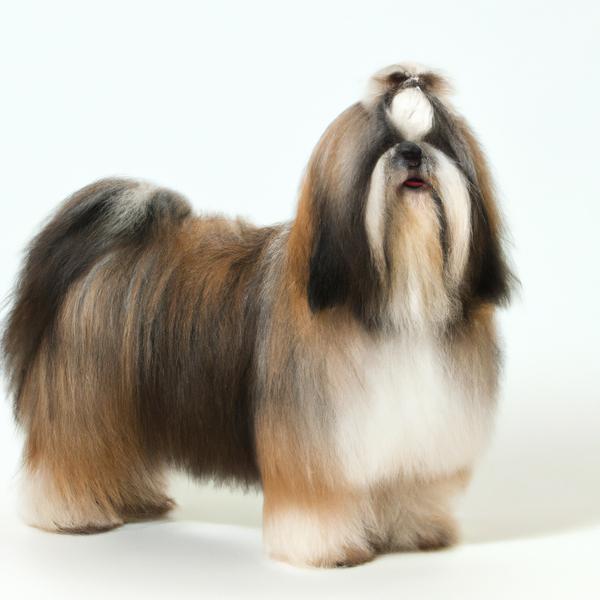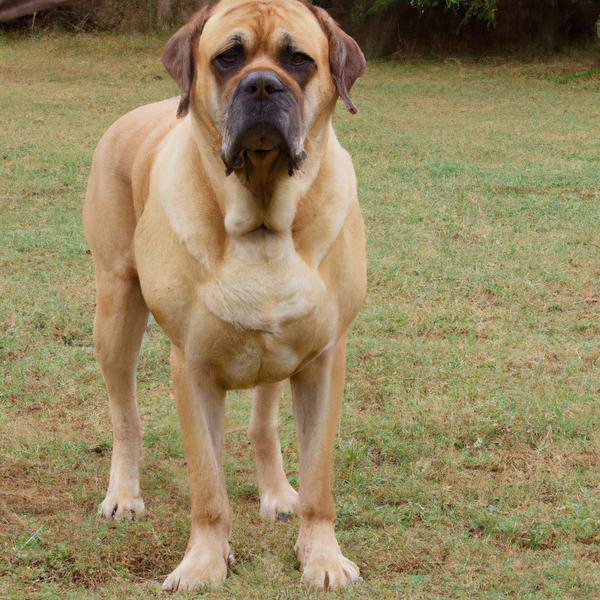Silky-Lhasa vs. Golden Bullmastiff Retriever: Breed Differences and Similarities
Hypoallergenic
Are Silky-Lhasas or Golden Bullmastiff Retrievers hypoallergenic, or neither?
Unfortunately, neither Silky-Lhasa nor Golden Bullmastiff Retriever are hypoallergenic, which may not make them the best choice for dog lovers who suffer from pet allergies.
Temperament
What are the personalities of Silky-Lhasa and Golden Bullmastiff Retriever dogs?
Playful
Alert
Intelligent
Friendly
Responsive
Obedient
Quick
Devoted
Lively
Joyful
Inquisitive
Steady
Spirited
Assertive
Protective
Alert
Powerful
Courageous
Intelligent
Confident
Friendly
Docile
Reliable
Loyal
Devoted
Kind
Calm
Trustworthy
Shedding Level
Do Silky-Lhasas shed more than Golden Bullmastiff Retrievers, or which breed sheds more, Silky-Lhasas or Golden Bullmastiff Retrievers?
Silky-Lhasa or Golden Bullmastiff Retriever dogs are not heavy shedders, but they will lose a significant amount of hair each year. To decrease the amount of shedding, you can regularly brush your Silky-Lhasa or Golden Bullmastiff Retriever. This will remove loose hair and keep their coat growing in the same direction.
Origin
What is the origin of Silky-Lhasa and Golden Bullmastiff Retriever dog breeds?
United States
United States
Ancestry
What are the origins of Silky-Lhasa and Golden Bullmastiff Retriever breeds?
Silky Terrier, Lhasa Apso
Golden Retreiver, Bullmastiff
Breed recognition
Which kennel clubs recognize/register Silky-Lhasa and Golden Bullmastiff Retriever?
ACHC = American Canine Hybrid Club
DBR = Designer Breed Registry
DDKC = Designer Dogs Kennel Club
DRA = Dog Registry of America, Inc.
IDCR = International Designer Canine Registry®
ACHC = American Canine Hybrid Club
DRA = Dog Registry of America, Inc.
Date of Birth
When were Silky-Lhasa and Golden Bullmastiff Retriever breeds first developed?
2000s
Unknown
Eye Color Possibilites
What are the eye colors of Silky-Lhasa and Golden Bullmastiff Retriever dogs?
Brown
Brown
Nose Color Possibilites
What are the natural nose colors of Silky-Lhasa and Golden Bullmastiff Retriever?
Black
Black
Brown
Coat Color Possibilites
What are the natural colors of the coat for Silky-Lhasa and Golden Bullmastiff Retriever breeds?
Black
Brown
Cream
Blue
Silver
Pied
Sable
Brindle
Brindle
Red
Fawn
Coat Length
What is the typical coat length for Silky-Lhasa and Golden Bullmastiff Retriever breeds?
Silky-Lhasas are known for their coat length.
Golden Bullmastiff Retrievers have short coats.
Coat Density
What is the density of the coat of Silky-Lhasa and Golden Bullmastiff Retriever?
Coat Texture
What is the hair texture of Silky-Lhasa and Golden Bullmastiff Retriever?
Straight
Litter Size
What is the usual litter size for Silky-Lhasa and Golden Bullmastiff Retriever?
A Silky-Lhasa can have a litter of 4-6 puppies on average. However, it's worth noting that the size of the litters can vary greatly. Factors that can influence litter size include the health of the mother, breeding history, and genetics.
A Golden Bullmastiff Retriever can have a litter of 5-10 puppies on average. However, it's worth noting that the size of the litters can vary greatly. Factors that can influence litter size include the health of the mother, breeding history, and genetics.
Adaptability
The adaptability of Silky-Lhasa and Golden Bullmastiff Retriever dogs is a well-known trait. They are known for being able to adjust well to different living environments and lifestyle changes.
Health Issues
Between Silky-Lhasa and Golden Bullmastiff Retriever, which breed is more prone to health problems?
While the Silky-Lhasa breed is generally healthy, occasional vet check-ups are still necessary to address any health concerns.
The Golden Bullmastiff Retriever breed is generally very healthy, requiring minimal vet visits. Still, it's important to keep an eye on their health and seek veterinary care when needed.
Major Concerns
What are the major health concerns for Silky-Lhasa and Golden Bullmastiff Retriever breeds?
Tracheal Collapse
Spongiform Leukodystrophy
Intervertebral Disc Disease (IVDD)
Hip Dysplasia
Bloat
Minor Concerns
What minor health issues should be kept in mind when owning Silky-Lhasa and Golden Bullmastiff Retriever?
Patellar Luxation
Urolithiasis
Diabetes
Congenital Eye Defects
Elbow Dysplasia
Cataracts
Glaucoma
Skin Allergies
Foot Cysts And Infection
Hypothyroidism
Occasional Tests
What occasional tests are recommended for Silky-Lhasa and Golden Bullmastiff Retriever breeds?
Eye Examination
Respiratory Tests
Blood And Urine Analysis
Diagnostic Imaging
Physical Examination
Radiographs
Social Needs
Silky-Lhasa vs Golden Bullmastiff Retriever social needs comparison
Silky-Lhasa and Golden Bullmastiff Retriever have above average social needs compared to other breeds. They thrive in environments where they have a lot of interaction with humans and other dogs.
Sleeping Need
Which of the two sleeps the most/least: Silky-Lhasa or Golden Bullmastiff Retriever?
Silky-Lhasa and Golden Bullmastiff Retriever breeds are known to have moderate energy levels and normal sleep patterns, typically sleeping around 12-14 hours per day.
Mouthiness
Mouthiness Comparison: Silky-Lhasa vs Golden Bullmastiff Retriever?
Roaming urge
Silky-Lhasa vs Labrador: Running away tendency?
Prey Drive
Silky-Lhasa or Golden Bullmastiff Retriever - which breed has a higher level of prey drive?
Past times
What are some enjoyable activities and ways to keep Silky-Lhasa and Golden Bullmastiff Retriever entertained?
Beach, Walks, Park
Fetch, Walk, Trampoline
Activity Level
Which breed has higher energy, Silky-Lhasas or Golden Bullmastiff Retrievers?
Both Silky-Lhasa and Golden Bullmastiff Retriever are medium-energy dogs that enjoy socializing and playing with other dogs. They may engage in casual or sustained games of chase, and occasionally have bursts of barking or racing around the house.
Tolerance of being left alone
Walks per Week
How many miles should Silky-Lhasa or Golden Bullmastiff Retriever walk each week?
There's really no limit to how far you walk your dog as long as they're comfortable. For Silky-Lhasa, it's at least 5 miles / week. Just remember to build distance and stamina gradually over time.
There's really no limit to how far you walk your dog as long as they're comfortable. For Golden Bullmastiff Retriever, it's at least 8 miles / week. Just remember to build distance and stamina gradually over time.
Activity per Day
Do Silky-Lhasas or Golden Bullmastiff Retrievers require more exercise?
In general most Silky-Lhasas usually need at least 45 minutes of exercise daily. This can be spread across the day and include all sorts of high-energy activities, like walking, running and playing.
In general most Golden Bullmastiff Retrievers usually need at least 60 minutes of exercise daily. This can be spread across the day and include all sorts of high-energy activities, like walking, running and playing.
Grooming
Which breed is easier to maintain in terms of grooming, Silky-Lhasas or Golden Bullmastiff Retrievers?
Silky-Lhasas have high grooming needs, requiring regular trims and professional grooming assistance to keep their coat healthy.
The Golden Bullmastiff Retriever requires an average amount of grooming compared to other breeds.
Brushing Frequency
What is the recommended brushing frequency for Silky-Lhasa and Golden Bullmastiff Retriever dogs?
Ideally, Silky-Lhasa should be brushed at least 2 or 3 times a week (preferably daily) improve shedding.
Golden Bullmastiff Retriever should be brushed at least once a week. Of course you can give them more frequent brushes if you find that they are still shedding a lot
Brushing Tools
What brushing tools are used for Silky-Lhasas and Golden Bullmastiff Retrievers?
Slicker Brush
Dematter
Comb
Nail Clipper
Slicker Brush
Comb
Nail Clipper
Cups
How much food should be given to Silky-Lhasa or Golden Bullmastiff Retriever in cups?
For an average 12-15 pound (5 - 7 kg) Silky-Lhasa feed 1 cups daily. But, keep in mind, the amount you feed is going to be dependent on the quality of the food you are feeding.
For an average 95-110 pound (43 - 50 kg) Golden Bullmastiff Retriever feed 3 cups daily. But, keep in mind, the amount you feed is going to be dependent on the quality of the food you are feeding.
Daily Cost
Which breed has a higher daily cost, Silky-Lhasa or Golden Bullmastiff Retriever?
The average cost of a Silky-Lhasa is somewhere $1.10 - $1.40 per day.
The average cost of a Golden Bullmastiff Retriever is somewhere $2.10 - $2.70 per day.
Monthly Cost
Which breed has a higher monthly cost, Silky-Lhasa or Golden Bullmastiff Retriever?
The average per month expenses of a Silky-Lhasa is between $28 - $42. This makes an average of $336 - $504 per year. It will be on the higher side when the dog is still small because it will need more frequent visits to the vet, shots.
The average per month expenses of a Golden Bullmastiff Retriever is between $55 - $63. This makes an average of $660 - $756 per year. It will be on the higher side when the dog is still small because it will need more frequent visits to the vet, shots.
Sensitivity Level
How do Silky-Lhasa and Golden Bullmastiff Retriever compare in sensitivity?
This breed is sensitive to its environment and best suited for patient and understanding families with a consistent routine.
This breed is sensitive and requires gentle handling and a calm home environment.
Apartment Friendly
Which breed is more apartment-friendly: Silky-Lhasa or Golden Bullmastiff Retriever?
Silky-Lhasas make excellent apartment dogs, being fairly active indoors and not requiring a yard.
Golden Bullmastiff Retrievers are good apartment dogs as long as they get enough exercise and stimulation outside of the apartment.
Child Friendly
Do Silky-Lhasas or Golden Bullmastiff Retrievers have a friendlier temperament towards children?
The typical characteristics of Silky-Lhasa and Golden Bullmastiff Retriever indicate that this breed of dog is an ideal companion for kids and makes them family pets. Their gentle and protective nature and calm mentality make them gel along quickly with the younger humans.
Senior-friendly
Which dog is more suitable as a pet for the elderly - Silky-Lhasa or Golden Bullmastiff Retriever?
Cat Friendly
Do Silky-Lhasa or Golden Bullmastiff Retriever breeds have a better compatibility with cats?
Silky-Lhasas are good with cats, but early training is needed to prevent chasing behavior.
Golden Bullmastiff Retrievers are average in their friendliness toward cats and tend to do well with them, especially if raised together.
Dog Friendly
Which breed is more sociable with other dogs: Silky-Lhasa or Golden Bullmastiff Retriever?
Silky-Lhasas are friendly and active companions, and can be good family pets, though their friendliness towards other dogs may vary.
Golden Bullmastiff Retrievers are average in their friendliness towards other dogs, and socialization can help.
Pet friendly
How do Silky-Lhasa or Golden Bullmastiff Retriever dogs interact with other pets?
Stranger Friendly
Which breed is more friendly with strangers: Silky-Lhasa or Golden Bullmastiff Retriever?
Silky-Lhasas are averagely friendly around strangers but benefit from early socialisation.
Golden Bullmastiff Retrievers are friendly but may bark at strangers, and training is easy due to their intelligence.
Playfulness
Which breed is more playful between Silky-Lhasa and Golden Bullmastiff Retriever?
Silky-Lhasa and Golden Bullmastiff Retriever are playful dogs. So, no matter how busy the day may get, the best thing you can do for Silky-Lhasa and Golden Bullmastiff Retriever is to make time each day to play. It can be as little as 15-20 minutes, and it will mean the world to them.
Trainability
How do the trainability levels of Silky-Lhasas and Golden Bullmastiff Retrievers compare?
Silky-Lhasa and Golden Bullmastiff Retriever dogs are known for their ease of training and ability to learn quickly, making them a popular choice for pet owners and trainers alike.
Compare Silky-Lhasa with other breeds

Wee-Chon
Silky-Lhasa vs Wee-Chon
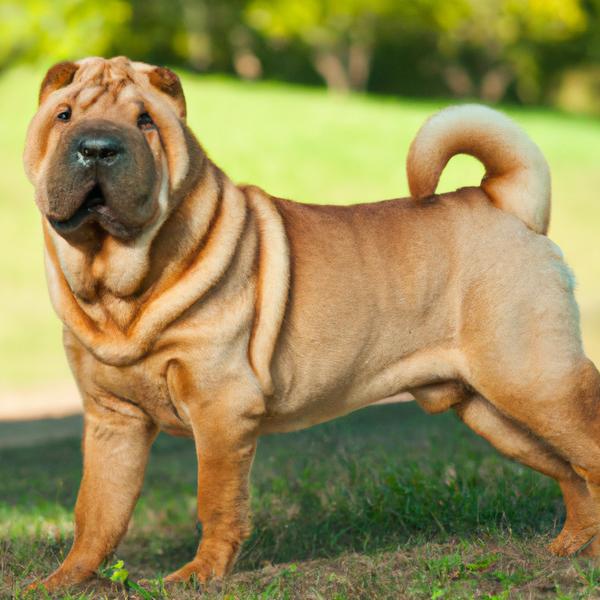
Chinese Shar-Pei
Silky-Lhasa vs Chinese Shar-Pei
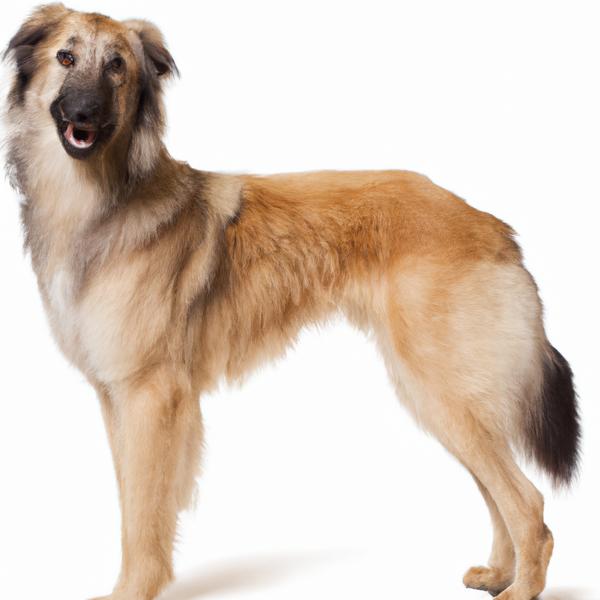
Belgian Laekenois
Silky-Lhasa vs Belgian Laekenois
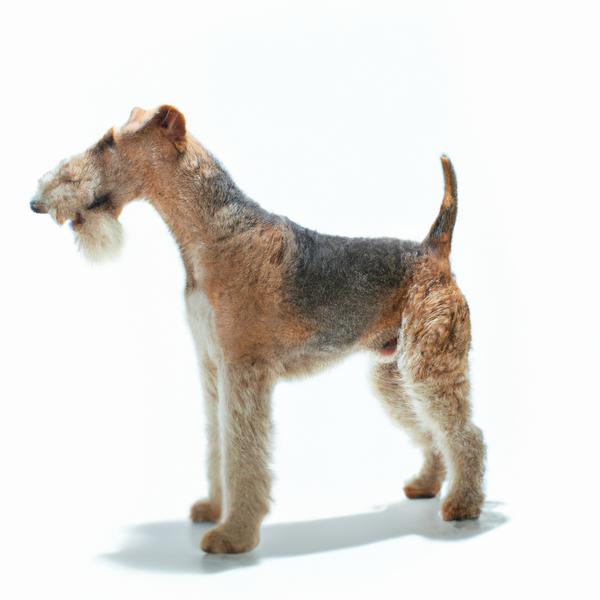
Smooth Scottish Fox Terrier
Silky-Lhasa vs Smooth Scottish Fox Terrier
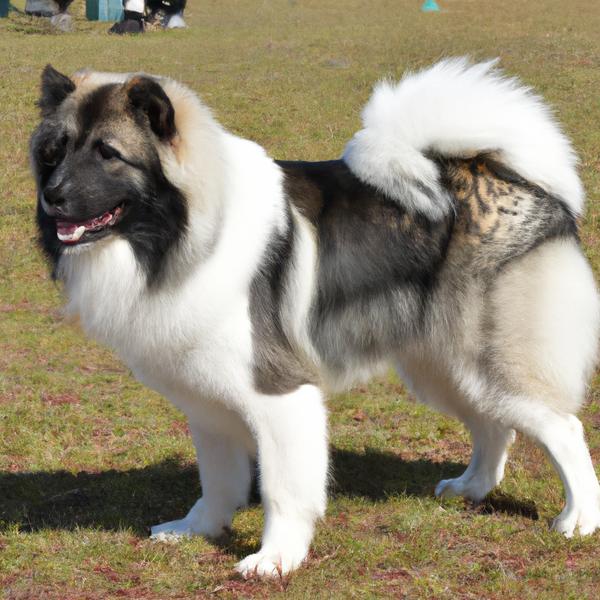
Lhaffon
Silky-Lhasa vs Lhaffon

Clumber Lab
Silky-Lhasa vs Clumber Lab
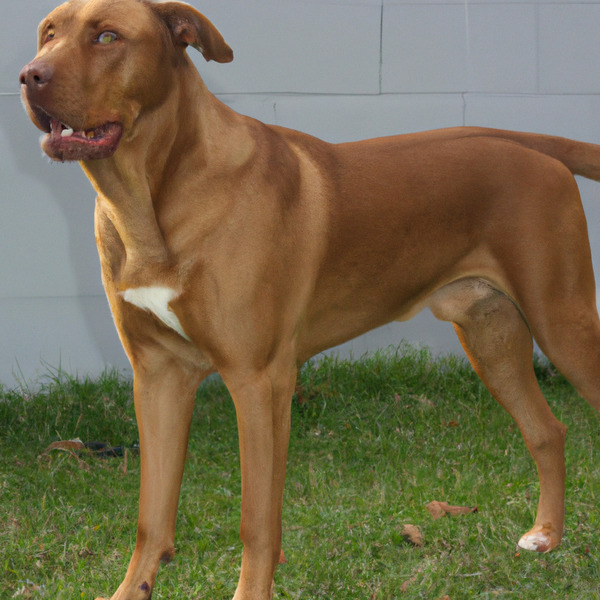
Uruguayan Cimarron
Silky-Lhasa vs Uruguayan Cimarron

Boston Huahua
Silky-Lhasa vs Boston Huahua
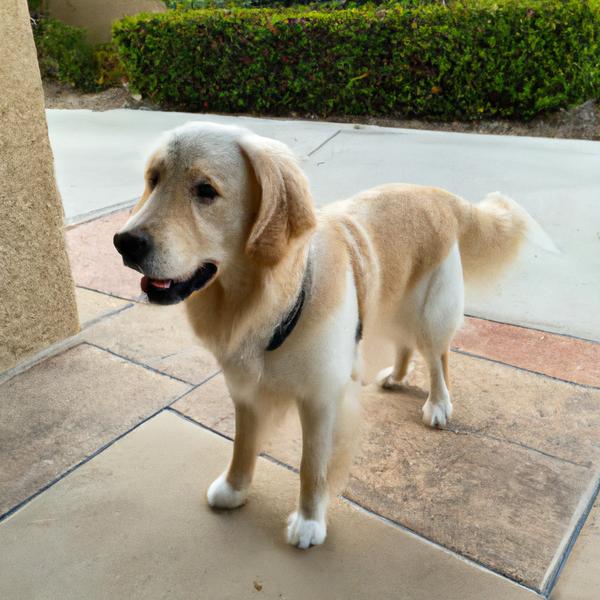
Petite Golden Retriever
Silky-Lhasa vs Petite Golden Retriever

Yorkie Russell
Silky-Lhasa vs Yorkie Russell
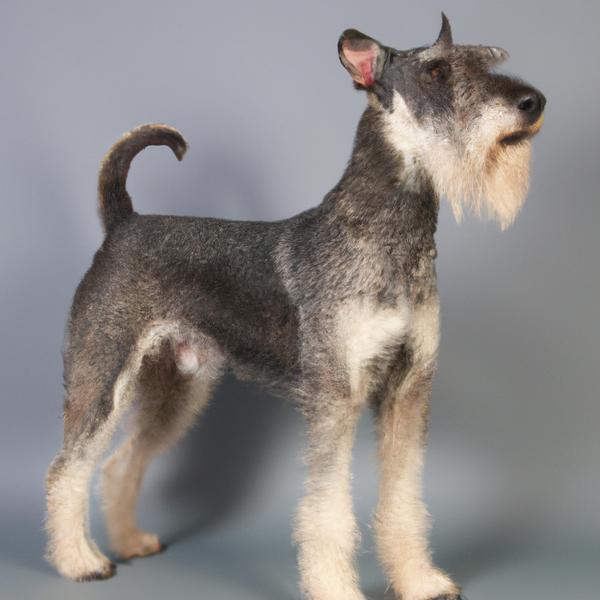
Standard Ratzer
Silky-Lhasa vs Standard Ratzer
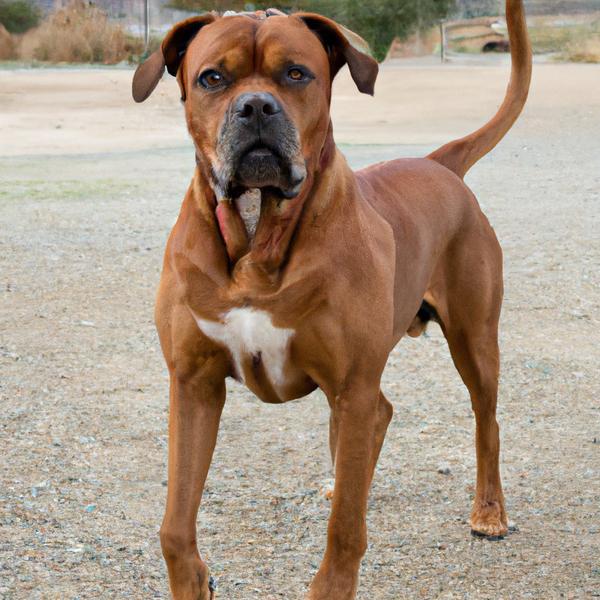
Boxador
Silky-Lhasa vs Boxador
